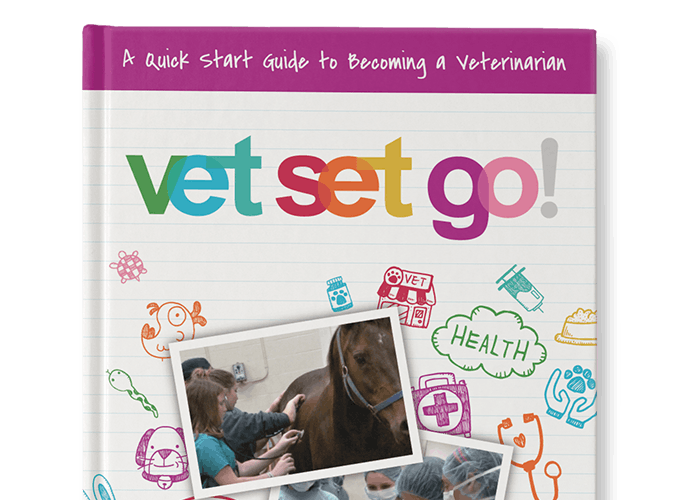Despite the name of their specialty, veterinarians who are board certified in zoological medicine are not limited to working in zoos. Any wild animal is “fair game,” whether it lives in its natural environment or in a zoo, aquarium, sanctuary, or conservation center. Zoological medicine specialists can also be found teaching, doing research, or in government or administrative positions.
These veterinarians may have an exciting job promoting the welfare of wild animals, but they have also dedicated many years to their training. Typically, 4 years of college are followed by 4 years of veterinary school, a 1-year internship, and a 3- or 4-year residency. After all of this, the candidate has to pass a 2-day examination given by the American College of Zoological Medicine (ACZM). Only then is a veterinarian board certified or a specialist in zoo medicine.The ACZM was established in 1983 to advance zoological medicine and oversee the training of veterinarians interested in the specialty. With 112 active members (or diplomates), zoo medicine may not be the largest of the specialties recognized by the American Veterinary Medical Association, but it is growing rapidly.
Let’s talk with Dr. Scott Citino, a member of the ACZM since 1991, to learn a little more about zoological medicine. Dr. Citino is currently a veterinarian with the White Oak Conservation Center in Yulee, Florida, a clinical associate professor for the zoological program at the University of Florida, and is part of the University of Miami College of Medicine’s Department of Comparative Pathology.
Dr. Citino, thank you for sharing your time with us today. When did you first decide to become a vet, and how did you become interested in zoo medicine?
I had considered veterinary medicine as a career from a relatively early age, probably when I was about 10 or 12 years old. I began working with some large-animal veterinarians when I was in high school, and that experience really instilled in me the desire to become a veterinarian. When I was in veterinary college, my interest in working with wildlife and “non-traditional” species was cultivated through working with raptors (birds of prey such as eagles or hawks), learning as much as I could about zoo/wildlife/aquatic medicine through courses at school, reading on my own, listening to and meeting zoo wildlife veterinarians at symposiums, and taking outside courses. I then did a preceptorship at the Lincoln Park Zoo during my fourth year in veterinary college, and that experience was crucial in my decision to pursue a career in zoological medicine.
Could you talk a little bit about the unique mission of wildlife conservation centers and what a typical day for a vet in one of these facilities is like?
The private conservation center I work for conserves threatened and endangered species of wildlife such as okapi (an animal that looks like a small giraffe with a short neck), rhinoceros, and cheetah by maintaining scientifically managed captive populations that provide opportunities for research, training, reintroduction, and involvement in field conservation programs.
It is difficult to describe a typical day for a zoological veterinarian, as they can vary greatly. Besides providing preventive and clinical healthcare to all of the animals at the center, White Oak provides me the opportunity to train veterinary residents and students, technician and keeper interns, foreign veterinarians, and to be involved in the unique course Envirovet Summer Institute, part of which is held at White Oak. I also am able to carry out important research to benefit the animal species we work with and am involved in field conservation programs for many endangered species.
Do you have a case that stands out as being especially rewarding?
There have been many rewarding cases over the years. One that comes quickly to mind is that of an adult male Florida panther that was hit by a car in South Florida and sustained a fractured leg. The panther was brought to White Oak by the Florida Fish and Wildlife Conservation Commission for medical care and rehabilitation. Because the fracture site was open and infected, it did not heal quickly and required almost daily care and several surgical procedures. All in all, the panther was at White Oak for about a year and was anesthetized about 100 times. We eventually got the leg healed and the panther rehabilitated and it was released back into its old territory in South Florida. The panther re-established its territory and became a dominant male again and has since sired several litters. In a small population where there were only 30 to 50 animals left, a success such as this was a big one.
Could you tell us a funny story about what it is like to work with wild animals?
Working with wild animals provides many rewarding, funny, and also some very dangerous experiences for zoological veterinarians. Two adult male orangutans that I had the pleasure of working with had chronic health issues that required they be darted for anesthesia and provided with medications quite often. Instead of getting upset and making the procedure difficult for both them and me, they quickly learned to turn around, point to the spot they wanted me to dart them, and then they would pull the dart out, walk to the barrier screen, and hand me the dart back.
Do you have any pets at home or does your work make dogs, cats, and the like seem a little boring?
I have tried to decrease the number of pets I have at home over the last few years due to my travel schedule, but I do have a “little terror” Jack Russell terrier at home that keeps me busy.
And finally Dr. Citino, what advice would you give to tweens and teens who might be interested in pursuing a career in zoological medicine?
The zoological medicine career path has become very competitive, so future veterinarians interested in this field need to stand out from the rest. Make yourself as knowledgeable as possible regarding biology, ecology, and the natural history of as many species as possible. Work with as many veterinarians as you can to gain experience and to have future references to draw upon. Study hard and keep your grades up—yes, grades are very important in this competitive field. Try to have some unique experiences and training that will make you stand out. Gear your career path to become boarded in the American College of Zoological Medicine, as a large percentage of jobs in this field now require this credential. Last but not least, be persistent and always have a backup career path if things do not work out











Comments Add Comment
Kennedy12
Totally going to be one a the "branches" of being a vet I am going to consider
Kennedy12
Totally going to be one a the \"branches\" of being a vet I am going to consider
Want to add a comment?
In order to comment you need to login or join Vet Set Go